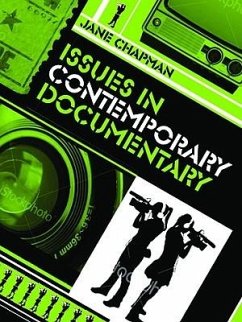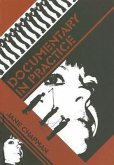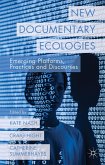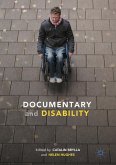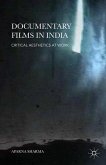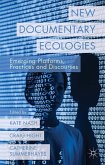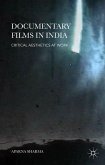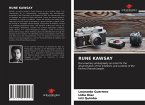Documentary is fast changing: with the digital revolution and the enormous increase in Internet usage, the range of information and outlets for distribution continues to become more diverse. In this context, are the traditional themes and frequently irreconcilable critical positions of study still valid - or are they changing, and if so, how? In short, what are the issues for documentary studies now? The starting point of Issues in Contemporary Documentary is that although documentary history cannot be ignored, the genre needs to be understood as complex, multi-faceted, and influenced by a range of different contexts. Jane Chapman brings to life the challenges of contemporary documentary in an accessible way by balancing theoretical discussion with use of cutting edge material from Europe and North America and the developing world. Whilst the need for critical appraisal of documentary is greater than ever before, Chapman believes that future discourses are likely to be shared between academics and specialist online communities as viewers become makers, and both categories may also become activists. Maintaining all parties can benefit from an awareness of continuity and change, she predicts that activist documentary will increasingly become a category to follow in the future. Each chapter contains recent international case studies, and the content evolves thematically with definitions, representation, objectivity, subjectivity, censorship, authorial voice, reflexivity, and ethics as headings. This free standing, innovative study can also be used in conjunction with Documentary in Practice (Polity 2007) by the same author. The two books provide an essential 2 volume introduction for all students and scholars of film and media, plus those practitioners seeking insight into their craft.
"Brings the study of documentary up-to-date through a range ofcontemporary examples, which is particularly useful for journalismstudents who are interested in documentary practice, whilstoffering historians of film and television an important contextualresource for understanding issues in documentary today."
Historical Journal of Film, Radio and Television
"Broad-ranging ... This book is undoubtedly recommended as anundergraduate textbooked, evidenced by its lucid exposition andeasily accessible and clearly presented case studies; however, itnonetheless offers a useful account and summary of the key debatesthat surround and inform the terrain of the contemporarydocumentary."
Times Higher Education
"Jane Chapman's book offers students a clear introduction tosome of the main questions and debates surrounding currentdocumentary practice. Not only is the whole book developed aroundselected examples, it is informed throughout by the ethical,creative, and technological challenges of actually making films andprogrammes. Its strongly 'insider' viewpoint usefully complementsthe 'outsider' framings of most film and television studies."
John Corner, University of Liverpool
"In a clear, comprehensive style, Jane Chapman has vividly laidout the key issues in documentary. With attention to historicaltrends and theoretical debates this book will be of enormous use toscholars and practitioners of documentary. This book should find awide audience among students and viewers of documentary."
Paula Rabinowitz, University of Minnesota
Historical Journal of Film, Radio and Television
"Broad-ranging ... This book is undoubtedly recommended as anundergraduate textbooked, evidenced by its lucid exposition andeasily accessible and clearly presented case studies; however, itnonetheless offers a useful account and summary of the key debatesthat surround and inform the terrain of the contemporarydocumentary."
Times Higher Education
"Jane Chapman's book offers students a clear introduction tosome of the main questions and debates surrounding currentdocumentary practice. Not only is the whole book developed aroundselected examples, it is informed throughout by the ethical,creative, and technological challenges of actually making films andprogrammes. Its strongly 'insider' viewpoint usefully complementsthe 'outsider' framings of most film and television studies."
John Corner, University of Liverpool
"In a clear, comprehensive style, Jane Chapman has vividly laidout the key issues in documentary. With attention to historicaltrends and theoretical debates this book will be of enormous use toscholars and practitioners of documentary. This book should find awide audience among students and viewers of documentary."
Paula Rabinowitz, University of Minnesota

